Zooming should be in the next edition of the dictionary. It is now more a norm of business interaction than in-person communication. And it can be fatiguing! At first, wow, what fun, but after a while, being on video call after video call gets to you. It becomes fatiguing, both physically and emotionally. Sitting all day can get to your back and neck, and not being with others can feel isolating. Being on constant video calls (whether it’s Zoom or another platform) requires more mental processing than face-to-face interactions. Moreover, seeing ourselves gives us the sense that we are always “on” and have to act accordingly.
Now, the veteran zoomers among us tend to multi-task even more than usual. Our poor brains! The brain is not meant to multi-task so we end up using even more energy to do so.
It appears there are efforts moving us back to “normal.” In some geographic areas and in some businesses, in-person meetings and gatherings have begun, while others are being more cautious and sticking with videos, and still, others are trying hybrid meetings which could be the best resolution of all.
“Normal” is coming, and yes, the COVID vaccine is being rolled out, but as a gentle reminder, it is not a cure. It does not prevent you from becoming infected, and it does not stop the possibility of you infecting others. The vaccine, they say, will reduce your symptoms if you become infected. Therefore my friends, until we understand more about COVID and the different strains, as well as knowing more about the different vaccines, please be careful. Think not only about yourself and also about others.
Here are some tips to help Zoom fatigue:
1) Schedule 10-15 minutes between each call so you don’t burn out.
2) Center and ground yourself in between calls and shake off the energy from one call so you go into the next with a fresh, positive, clear-headed mindset.
3) Stand up and walk around between calls, change your posture, step outside, or do some deep breathing.
4) Eat healthy snacks with protein and healthy drinks and avoid excess sugar and caffeine.
5) Do some exercise stretches at your desk, standing or on a mat. For example, try some bicep or tricep curls, lay on your back, pull your knees to your chest and rock back and forth so you are massaging your lower back.
6) Turn off video camera – Just listen without being on screen. You may be able to focus better just using your auditory sense and giving the visual a rest!
7) Use your time productively and shorten the length of your calls. Try 45 minutes instead of an hour, or 30 minutes, or even 15 if you can. In the course of a day it can make a big difference.
8) Schedule a screen-free time, even if it’s on the weekend.
9) Try a meeting-free day. Do some tasks to catch-up and aren’t screen-related.
10) Reduce stress with whatever works for you – music, meditation, sports, taking your dog for a walk, and so on.
On a personal note … Drum roll: Eliminate the word pivot from your vocabulary – that fatigues me!!!

